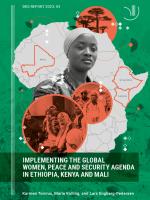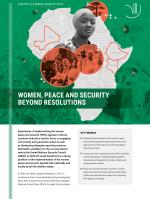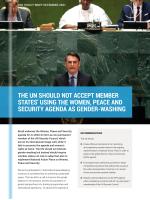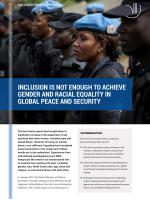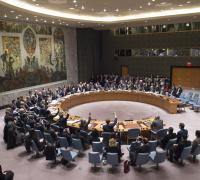Taking stock of women, peace and security policy ownership
This new DIIS report takes stock of the women, peace and security (WPS) agenda in Ethiopia, Kenya and Mali.
Examining whether the adoption and implementation of national action plans (NAPs) foster ownership of the global agenda, this report shows that WPS is embraced by a tight circle of actors. Additionally, the NAP implementation is challenged by unsustainable funding, lack of comprehensive data and monitoring and questionable political commitment. Regardless, the drafting and adoption of WPS NAPs link grassroots efforts to official government policy and thereby legitimise the work of different stakeholders. NAPs are used to monitor governments' engagement with the agenda, to mobilise funds and to debate gendered aspects of new and old security challenges - all of which advance the WPS agenda.
The study proposes that the relevance and ownership of national WPS policies could be enhanced through improved reporting tools for accountability, broad inclusion of civil society and engagement with both traditional and innovative local peacebuilding initiatives.
Cover illustration: Rasmus Fly Filbert.
DIIS Experts


